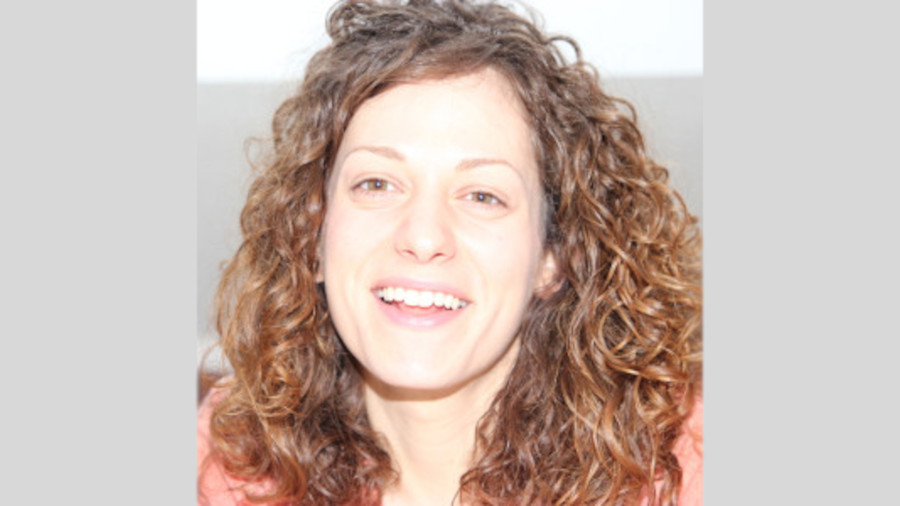ICTA-UAB researcher Panagiota Kotsila has received a Consolidator Grant from the European Research Council (ERC) to develop the project "Embracing Immigrant Knowledges for Just Climate Health Adaptation" (IMBRACE), which aims to analyse the nexus between climate, health, and immigration. Other researchers receiving grants are Joan Llull, from MOVE, and Elena del Corro García, from ICN2, as well as the formalisation of Adam Ranson's grant corresponding to last year's call, which will go to the development of his project at the UAB.

The European Research Council (ERC) has announced the 308 winners of its 2023 Consolidator Grants competition. These excellent mid-career researchers are awarded a total of €627 million as part of the European Union Research and Innovation Horizon Europe programme.
With grants worth up to €2 million each, they will be able to consolidate their research teams and develop their innovative ideas. To do so, they will employ postdocs, PhD students and other research team members.
Researcher from the Institute of Environmental Science and Technology (ICTA-UAB) Panagiota Kotsila will receive one of the Consolidator Grants awarded to UAB researchers to develop her project entitled IMBRACE, a novel, comparative and in-depth study that will open new paths for research at the nexus of climate, health, and immigration.
Vulnerability in the face of climate change
Climate change, human health and immigration are arguably the most prominent, enduring, and challenging issues of our times, with important implications for justice. Studies on the nexus of these issues have largely focused on climate change as posing challenges to health and thus acting as a push-factor for migration. However, our understanding of how climate is impacting the health of immigrants in their places of destination is still poor.
Understanding potential climate and health inequities is further hampered by the fact that immigrant communities in Europe are far from homogenous, and are often racialized groups of great ethnic diversity.
Focusing on 6 case-study cities in Europe, IMBRACE aims to examine the factors that shapes immigrants' climate health vulnerability and how their knowledge and practices can influence their own coping capacities and urban climate adaptation in general. The aim is to achieve more effective and just approaches. To this end, the project focuses on the two most relevant climate impacts for urban areas in Europe with important health implications: increased and prolonged heat, and intense rainfall and flooding. Researchers will use a pioneering feminist political ecology approach that combines participatory ethnography, critical discourse and policy analysis, and transdisciplinary knowledge production.
Immigration policies, medical implants and sleep mechanisms
Other beneficiaries of the same call were MOVE researcher Joan Llull, lecturer linked to the Department of Economics and Economic History, for the OPIMPOL project ("Optimal Immigration Policy"), and ICN2 researcher Elena del Corro García, for the TriboMed project ("Triboelectric energy generators for self-powered medical implants"), both research centres located on the UAB campus.
In addition, the grant for researcher Adam Ranson, obtained in the 2022 call, was formalised and will go towards developing his research project at the UAB. The DREAMNET project ("Mechanisms and purpose of top-down neural activity generation across conscious states") will start on 1 April 2024 and aims to investigate neural activity during sleep using a new experimental approach based on multiphoton imaging of different areas of the mouse brain, in periods of sleep and wakefulness. The research may answer fundamental questions about the interrelationship of brain activity patterns in both states and their propagation in the brain, and may involve fundamental advances in the understanding of the architecture of neuronal activations during sleep.
2,130 research proposals
ERC Consolidator Grants are awarded to outstanding researchers of any nationality and age with at least seven and up to 12 years of experience after PhD, and a scientific track record showing great promise. Research must be conducted in a public or private research organization located in one of the EU Member States or Associated Countries. The funding, reaching a maximum of €2 million per grant, is provided for up to five years.
The laureates of this grant competition will carry out their projects at universities and research organizations in 22 EU Member States and other countries associated with Horizon Europe. Among the EU countries, the highest numbers of grants will be allocated to researchers in Germany (66 projects), the Netherlands (36), France (23) and Spain (23). Among the winners of this call there are 43 different nationalities, notably Germans (56 researchers), Italians (36) and Dutch (27). The ERC has evaluated 2,130 research proposals this time, out of which 14.4% will be funded. The grants will create an estimated 1,800 jobs for postdocs, PhD students and other staff members working in the grantees' research teams.






